I have been in Bucharest for the past few days participating in the OECD Global Forum on the Future of Education. It has been great fun, meeting lots of new people, developing frameworks around AI and education and more. A few resources and photographs from the sessions and meetings below.
Concept paper
Nicole Oster and I wrote a short concept paper to kick start the conversation.
Mishra, P., & Oster, N. (2023). Developing a Teaching Compass in the Age of AI. A Concept Paper. Prepared for OECD Future of Education and Skills 2030 Global Forum on Implications of the Use of Generative AI for Teaching and Learning: Towards the OECD Teaching Compass. Bucharest, Romania.
This paper builds / extends ideas in two other publications, one published and the other in press. They are:
Mishra, P, Warr, M, & Islam, R. (2023): TPACK in the age of ChatGPT and Generative AI. Journal of Digital Learning in Teacher Education, DOI: 10.1080/21532974.2023.224748
Mishra, P., & Heath, M. K. (in press). The (Neil) Postman Always Rings Twice: 5 Questions on AI and Education. In M. Searson, L, Langran, J. Trumble (Eds.) Generative AI in Teacher Education: Opportunities, Challenges and Visions for the Future. AACE.
NOTE (added March 21, 2024): The second article is now published and can be found at
Mishra, P, & Heath, M. K. (2024). The (Neil) Postman Always Rings Twice: 5 Questions on AI and Education. In M. Searson, E. Langran, & J. Trumble (Eds.), Exploring new horizons: Generative artificial intelligence and teacher education (pp. 14-24). Association for the Advancement of Computing in Education (AACE).
Presentation
I was on a panel with some cool people… setting the scene, so to speak.
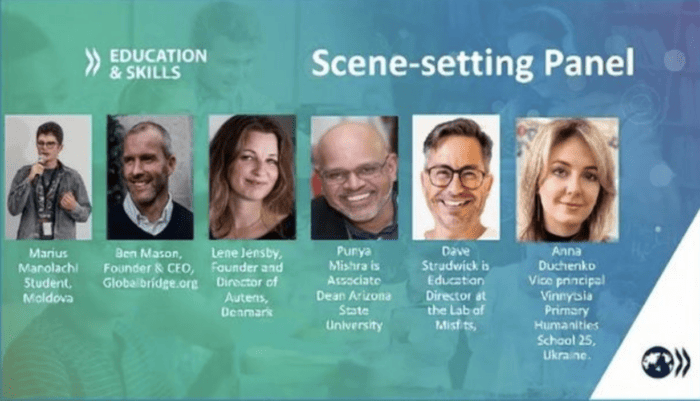
Here are the slides I presented
Photographs
And here are some photographs from the visit. The first is where the meeting was held – the Palace of Parliament in Bucharest (famous as being the heaviest building in the world). The second set are interiors of the Palace of Parliament as well as of other spots in and around Bucharest.
(Note: Compare the image below, and the first image of the slideshow – you will notice that the image in the slideshow is “cleaner” – no pesky lampposts and cars messing up the grandeur of the building! And yes these details were removed (in seconds, i must add) using generative AI, specifically Adobe Photoshop. Though aesthetically pleasing the photo in the slideshow is a lie.)
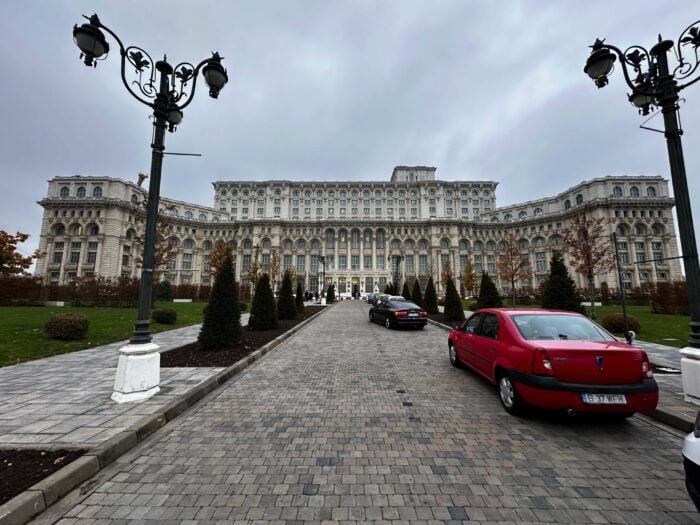
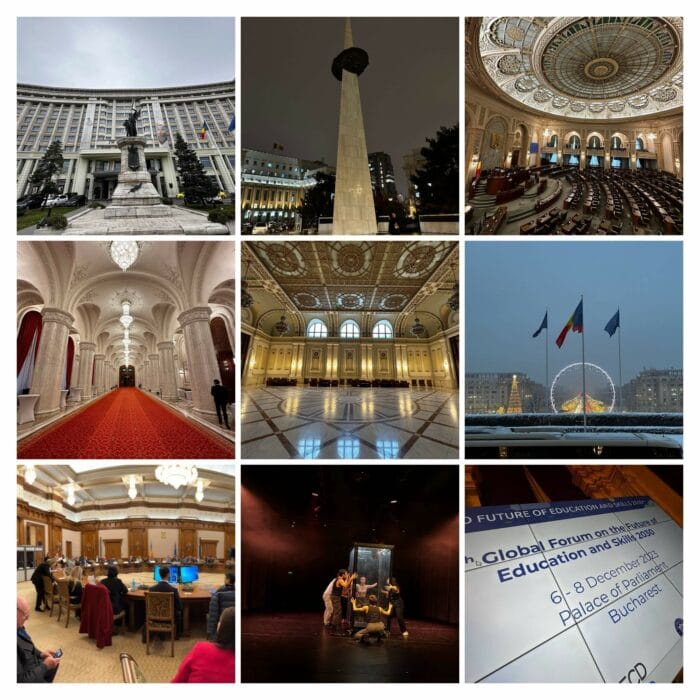
One of the best part of these meetings are the people we get to meet and hang out with. From top to bottom, left to right are a group that visited UiPath a software firm in Romania (the first Romanian unicorn); with Leonora and Lucia Sanchez. Leonora is a master’s student in interactive media and arts (her art installation is behind us) and Lucia works for an educational foundation in Spain; with Marius Manolachi, 17 year-old AI educator and entrepreneur; Ben Nelson, founder and CEO of Global Bridge; with Anna Duchenko, Vice-Principal and English teacher at Vinnytsia Primary School, Ukraine; just me being silly and a random sketch I made…
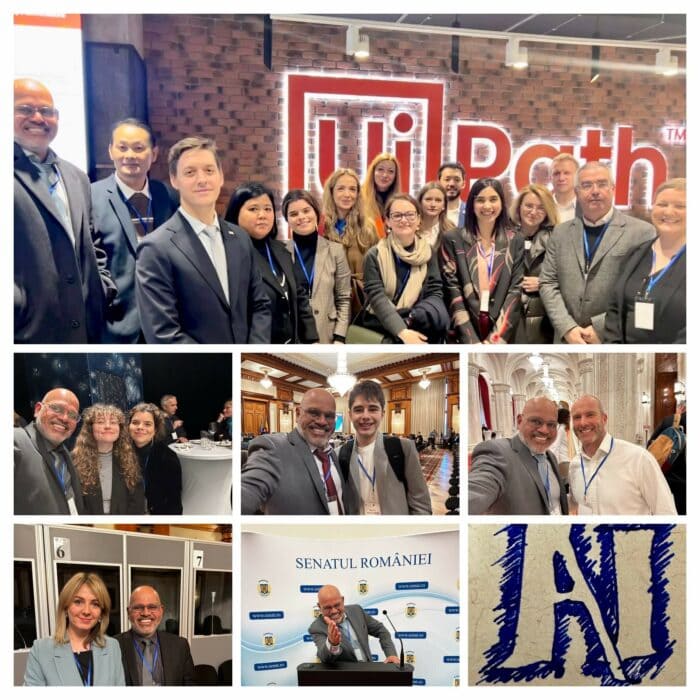
And of course no visit is complete without some interesting photographs of interesting design elements. Once again from from the top, left to right: The Memorial of Rebirth (a memorial to the victims of the Romanian Revolution of 1989, also known as potato on a skewer); strange signage on a footpath showing an arrow emerging from a tree; a funky image on a wall in a startup company; a face in a design in the Palace of Parliament; a printed fly in the toilet of the Marriot hotel I was staying in; the AI sketch again (don’t ask why); political irony in a toilet of a former Soviet bloc country; a wall somewhere in Bucharest, and finally a redefining of VUCA in more positive terms.
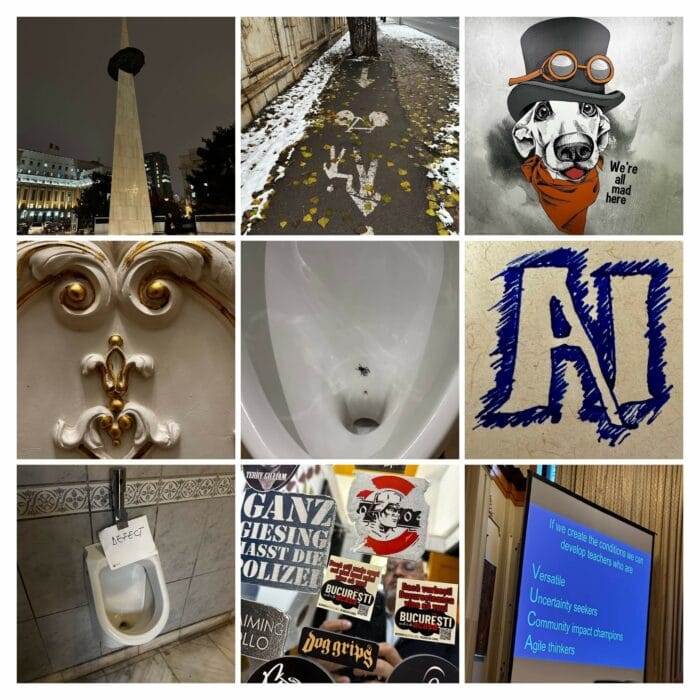
Finally thanks to the entire OECD team for all their help and support: Miho Taguma, Aynur Gul Sahin-Ozcan, Afrodite, Esther, Kebure and more.

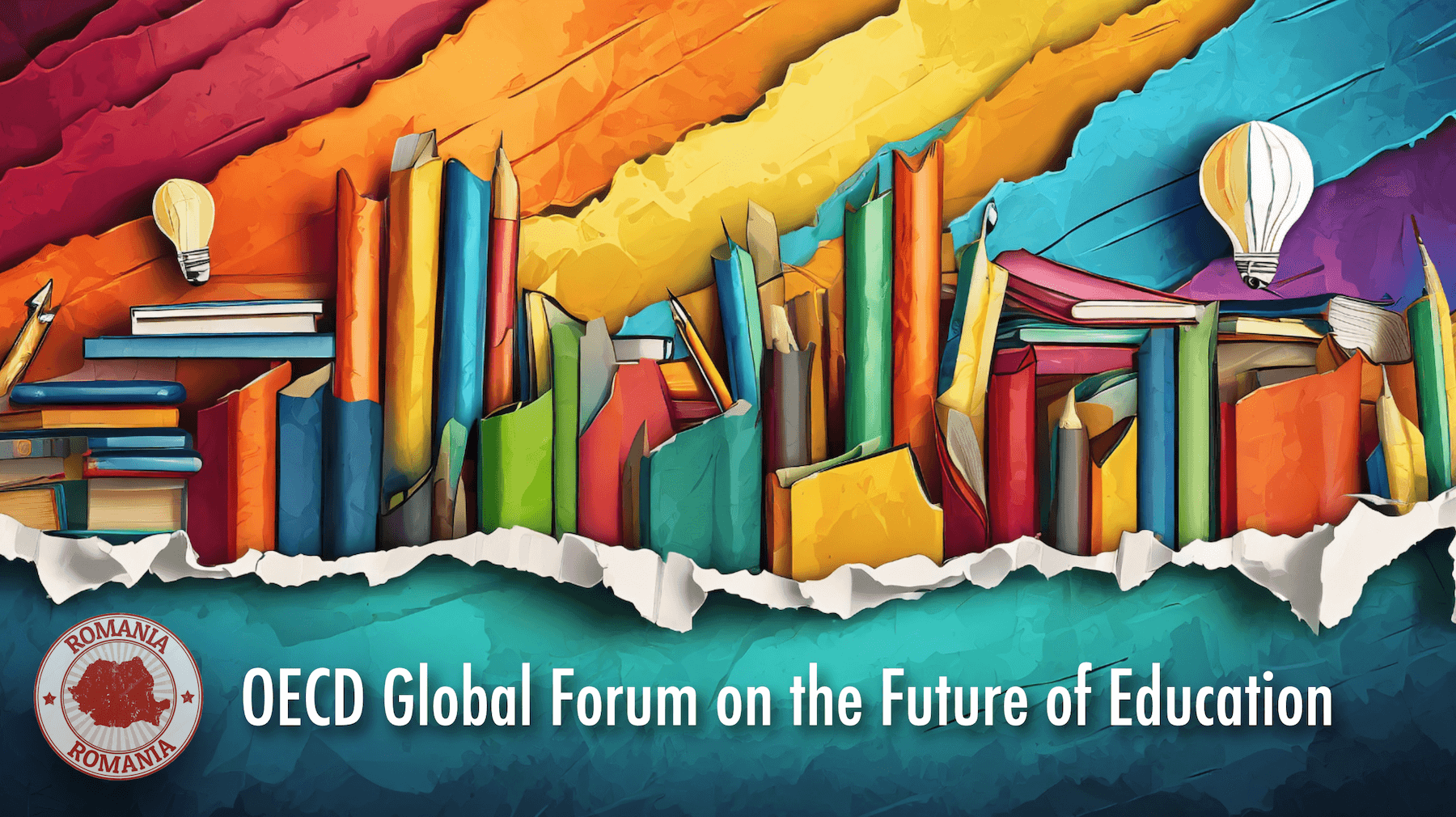
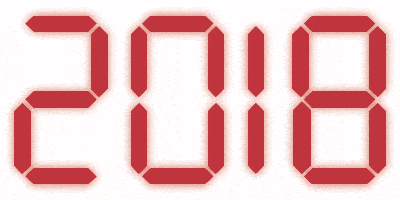
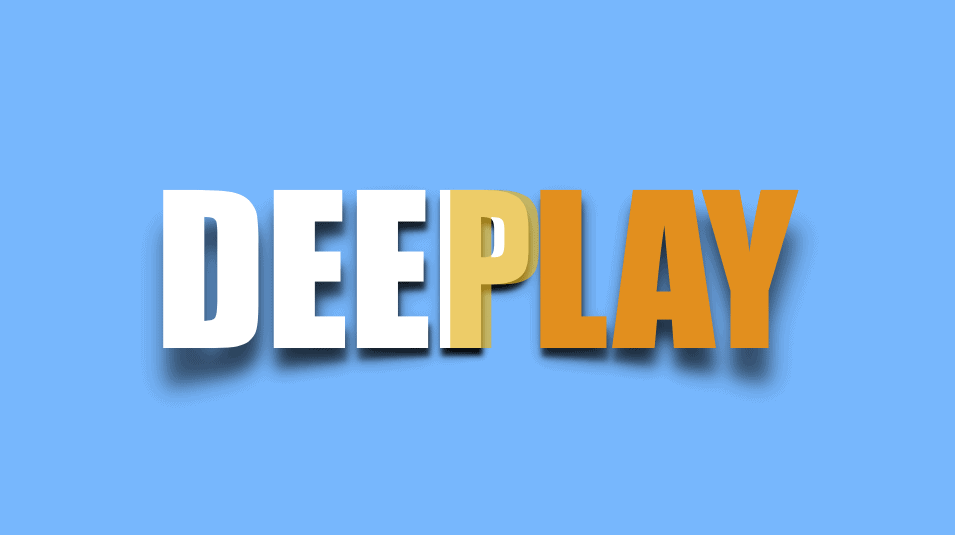
0 Comments